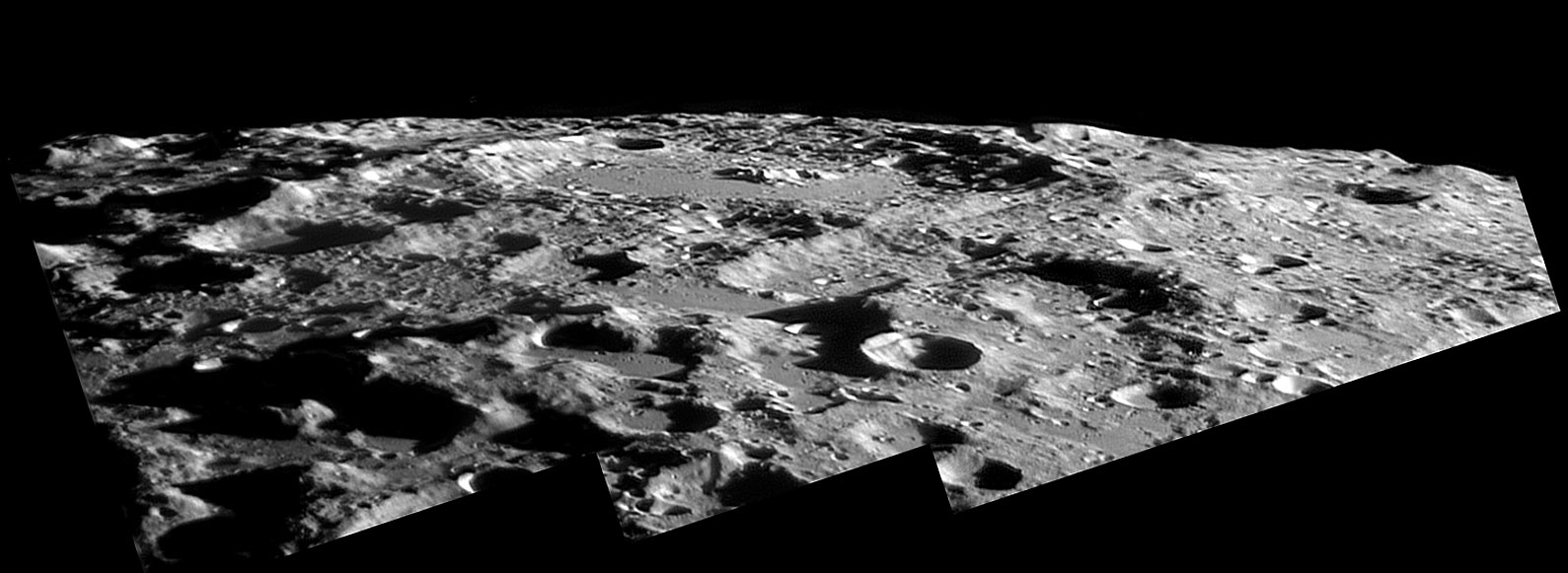November 19, 2021
Limb Magic
Originally published January 5, 2012

image by Harald Paleske, Langendorf, Germany
Note: While working on a future Sky & Telescope Exploring the Moon column I came across this excellent LPOD from Aug 16, 2008
that is well worth revisting. In the comments in the 2008 LPOD Danny Caes pointed out that the crater behind Drygalski on the left is
Ashbrook at 112°W longitude. I've not seen a better image.
Beyond Bailly, almost (85° W longitude) on the mean limb, is a large crater that is infrequently seen. With a diameter of 149 (or 163 km
according to IAU and Rükl, respectively), Drygalski is ~50% larger than Copernicus. The only nearside craters with a relatively fresh
classical Copernican look that are bigger are nearby Hausen (167 km) and distant Humboldt (207 km) and Petavius (177 km). Why
are these big craters near the limb? Harald's large scale image of Drygalski shows the smooth floor, and hints at the rougher floor behind
the central peak. A terrace is visible on the left wall but the right wall seems more disorganized, probably because of the larger number
of craters that cut that side, visible both here and in the Lunar Orbiter IV view.
Chuck Wood
Technical Details
2008-07-26, 4:42 UT. 408mm Newton f 8, 5 m, DMK 1/30sec. exposure, red filter, stack of 300 frames, 3 picture mosaic; seeing good (7/10)
Related Links
Rükl plates 72 & VI
Harald's excellent Solar (with Moon coming) website
Yesterday's LPOD: Quiet Crisium
Tomorrow's LPOD: Where They Are
COMMENTS?
Register, Log in, and join in the comments.



